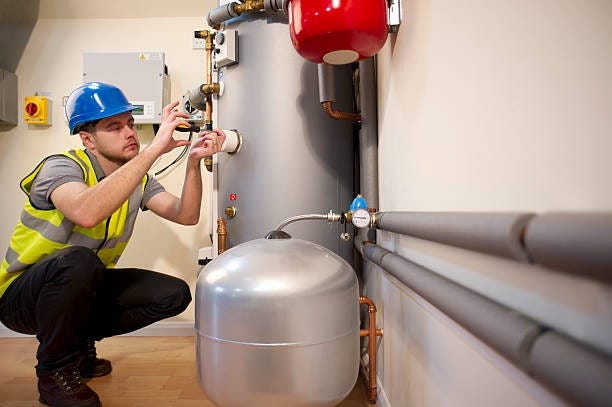Are you a business person, and your business is in dire need of a commercial boiler and you don’t know where to start? Boilers used in businesses are known as commercial boilers, which arecomprised of pressurized systems that use electricity or combustible to heat water that is used for heating buildings. Some of these may use the heated water itself or stem to provide heat. They are commonly used in schools, offices, hospitals among others. The steam or heated wateris circulated through baseboards units, radiators, or fan coils. They are also defined as having an input of at least 300,000 Btu/h (British thermal units per hour)
Boilers can be categorized by their source of fuel for heating. The most common used types of fuel in commercial boilers include;
- Oil- gasoline, diesel and other petroleum-based fuels
- Coal- crushed coal has proved to be more efficient than clumps
- Biomass- corn husks, wood chips, dried plants and other combustible plant substances.
- Gas- natural gas, and biogas
It may be confusing trying to figure out which boiler best suits your need, as they come with varying sizes, heat sources and intensity. Luckily this article will help you to get started in your research and learn about types of commercial boilers and their most ideal uses.
COMMON TYPES OF COMMERCIAL BOILERS.
- Fire tube boiler.
These types of boilers are the oldest. Also, they are relatively simple in design, they are much more affordable, and easy to operate. Hot gases travel from the heating source through tubes that circulate through a chamber filled with water. They are suitable for medium to low pressure uses. They also come in either a dry-back design or wet-back design. Simply, this means the end closure is cooled by water, while a dry-back is not cooled by water.
- Electric steam boiler
These types of boilers are eco-friendly and efficient since they do not produce any emissions. However, operating them may be costly compared to fire tube boilers. They are ideal for smaller operations like laundry, food processing facilities and hospitals.
- Water tube boiler.
These work opposite the opposite of fire tube boilers. In these, the heat is source outside and water is inside the tubes. They are highly efficient and are ideal for high pressure operations and those with viable load requirements.
What is the difference between commercial boiler and industrial boiler?
They both work by heating water or producing steam during industrial process. Most industrial boilers are used in food, chemical and paper industries while commercial boilers are used in hospitals, school and offices. These have water inputs ranging below 10MMBtu/hr, unlike the industrial boilers which have 1500MMBtu/hr. Commercial boilers are used for smaller tasks and are smaller in size. They areneeded to deliver moderate heating to facilities and buildings. However, industrial boilers are bigger, are best suited for heavy work in industries that demand a lot of heat.
Conclusion
Many boilers are designed to last for long to serve their purpose. Many boilers can last for more than 40 years but uber good maintenance. In the European countries, more buildings are installing commercial boilers and now it has become like a standard of construction to install them. This has created the niche to haveexperts that specialize in this field to offer services like installation, designs and supervision to consumers.

